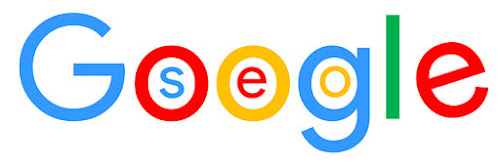What is SEO? Search Engine Optimization
It's the practice of optimizing content to be discovered through a search engine's organic search results. Think of a search engine as a filing system in a library.
The library has potentially billions of books with hundreds of trillions of pages. So let's say you want to find information on health supplements.
The search engine will then look through all pages in its index and try to return the most relevant results. Now, the first search engine you're probably thinking of is Google. But there are tons of other search engines you can optimize your content for.
For example, YouTube SEO is the process of getting traffic to your videos in YouTube's organic search results. Amazon SEO is the same, but you're optimizing your product pages to get free organic traffic. And of course, Google SEO is the process of optimizing your website to rank on Google and drive more traffic to your web pages.
Now, search engines use sophisticated algorithms and technology to return the best results for any given query.
Nobody knows exactly how these algorithms work, but we have clues, particularly for for Google, so we can make some optimizations. Now, why should you incorporate SEO into your marketing strategy?
Benefits of Search Engine Optimization:
Well, there are 3 major benefits of search engine optimization that attracts marketers from all over the world.
- Traffic from your SEO efforts is free.
- Your traffic will be consistent once you're ranking high.
- You have the opportunity to reach massive audiences; you wouldn't have access to otherwise.
Now, since every search engine has unique algorithms, you
and I won't be able to cover how each of them works.
And for that reason, we're going to be focusing on how Google works to rank pages since it's the largest search engine and the one that we here at s have the most information on. So how does Google work? Well, there are two main terms you need to understand.
These are crawling and indexing. To actually attain information, Google uses crawlers, also known as spiders, which gather publicly available information from all over the web. The spiders start with a list of URLs, which they may have previously crawled or found in sitemaps.
These are called seeds. They then follow the hyperlinks on the pages from the seeds and then crawl those newly discovered pages. And this process goes on and on, allowing them to build a massive index of information.
They then take all of this data back to Google's servers to
be added to what they call, their "search index." Their algorithms
then work by taking things like keywords and content freshness to categorize
queries so they can return the most relevant results to searchers in a fraction
of a second.
Now, Google isn't just about matching keywords within a search query.
They've created something called the "Knowledge Graph," which according to Google, "goes beyond keyword matching to better understand the people, places and things you care about For now, let's dig into the details of how their search algorithm works.
Again, Google's goal is to sort through hundreds of trillions of web pages within their search index and find the most relevant results in a fraction of a second. On Google's "How Search algorithms work" page, they say that they look at the words of a searcher's query, relevance and usability of pages, expertise of sources, and your location and settings.
These ranking factors aren't linear, but they ‘reweighted depending on the nature of your query. As an example, they mention that "freshness “of content plays a bigger role in answering queries about current news topics.
However
for definition-based queries like “what
is search engine optimization?" freshness wouldn't play as large of a
factor, since this core definition itself hasn't really changed.
In addition to technology based innovations like artificial intelligence and machine learning, Google also uses a group of people to manually assess how well a website gives people who click on the results what they're looking for.
These people are called, "Search Quality Raters." Rest assured that these aren't people at Google manually moving your web page around in the search results because they like or don't like you. These people don't directly impact rankings, but rather helps Google benchmark the quality of their results.
Google's Ranking factors:
The first and most obvious thing they need to do is
understand the meaning of a query. For example, if you search for "slow
cooker recipes," what do you expect to see in Google's search results?
Probably a list of recipes, right?
And that's how Google interprets the query too. But what if you just search for the word "slow cooker?" What would you expect to see? After keying that into Google search, you'll see product listings and eCommerce category pages.
They understand that anyone searching for an unboxing tutorial
would likely prefer video content over text or images. Whereas a query like
"map of New York," will show you image results as well as a widget
from Google Maps.
Google
is able to interpret that someone searching for this phrase likely has the
intent to purchase the appliance rather than look for recipes in that time.
Understanding the meaning of a query comes down to language.
Google has created language models to decipher strings of words they should look up. They understand that when you type "slow coker", that you're actually looking for "slow cooker."
Now, what about a query like, "best Mexican restaurant?" You'll see that Google shows restaurants that are close to your location, despite not entering a city name in the query.
And that's because someone searching for this isn’t going to fly halfway across the world for lunch. Another part of interpreting a searcher’s query comes down to freshness. For example, if you search for "Donald Trump," Google understands that people likely want recent news, over biographies. So they give priority in their top stories widget from reputable sources.
They also understand that if you're looking for something like "best headphones," that you likely want fresh information since new models and manufacturers are always on the rise. And you can identify this right in Google’s search results seeing as all top ranking pages have the current year in the title.
Most, if not all of the things we've covered here can be summed up into what
If you're unable to match the searcher's intent, in terms of content type and format, your chances of ranking are slim. But there are additional layers to understand how Google works. This leads us nicely into how Google identifies relevance through content on a web page.
In the most basic form, search engines will look at the content of the page to see if the words on that page are relevant to your query. But they're sophisticated enough to go beyond” exact match keywords." Google understands related keywords too.
Importance of Keywords:
A page increases in relevance with other semantically similar keywords. For example, if you have an article on how-to get a driver's license, you may have subsections on licensing for cars, motorcycles, and buses.
Another example would be if you were creating post on "the best luxury watches." Now, I want you to think of a 5-letter word that pops to mind when it comes to luxury watches. Let me help you out a bit. Rolex.
"chronograph." Rather than returning results that have "best luxury watches" written 100 times on the page, Google can see which pages are the most relevant to the searcher's request.
And Google confirms this by saying: "These relevance signals help search algorithms assess whether a webpage contains an answer to your search query, rather than just repeating the same question." Another factor Google looks at is the "quality of content." Google tries to prioritize and rank the most reliable sources.
Quality Content:
While "quality content," is impossible to objectively nail 100%, they use 3 broad categories to help identify quality pages. These are expertise, authoritativeness, and trustworthiness on a given topic; Also known as EAT.
One signals that Google mentions are getting websites to link to your content, which
Now, to prevent people from "gaming" the system, Google uses spam algorithms to try and identify deceptive or manipulative behavior.
One example would be "link exchanges," meaning you contact other webmasters and ask them to link to you. And in return, you'll link to them. We won't dig too deep into these factors, but if you're interested in learning more, I'll link up Google's search quality rating guidelines in the description, which has nearly 50,000 words on how they assess "quality content." Another factor Google considers is usability of Web Pages.
As a result, Google announced in 2018 that page speed will become a part of their mobile search ranking algorithm. The second usability factor is "mobile friendliness." Today, websites should appear correctly no matter what device you're on and no matter what browser you're using.
This is often referred to as "responsive design." Google has shifted to "
Search Engine Optimization is one of the key element to list in Google , Bing top search engines Top Rank. You could be working on Blog , YouTube, Commercial website and so on once if you work on the onpage SEO then publish means lots of chances for an increase in Visitors.
There Are many TOP SEO tools and Softwares in the market in which SEMrush the best in place to reduce the time in key word searches and SEO analysis.
Though this is just an over view of SEO, I will come back with another detailed SEO Step by Step guide soon!
If you enjoyed reading this post please feel free to share your comment and Subscribe to get new post update to your Inbox.
Content Ref: Credits to Ahrefs
Cheers!










![[App Review] Tata Neu : Shopping App](https://blogger.googleusercontent.com/img/b/R29vZ2xl/AVvXsEjFX8--KILikaQFRP-afjuHGjvvcpJx1tAoWU5U0ljG0CyrCIlVJ7h3XRnxAzAgYkbW6XyQVEagVliLvrUQgpxCWNolYnX5DmbLzW5YrHvIHumus5XGRosGvLMMcUp7D4Uee_vGjH3KzR6PbMjF3xtfB9v3QzKeGViCfx76cCigjByN9e9NGAzjt_Er/w100/tata-neu-app-review.jpg)

3 Comments
Get Information
ReplyDeleteSEO is important for the success of your website. Ranking high on search engines can help drive traffic to your site. Search Engine Optimization is a powerful marketing strategy for a website, as it allows your site to be visible in search engines like Google. It is essential for digital marketing and the success of any business.
ReplyDeleteRules do change frequently, and SEO is growing online. SEO companies near me has been used by many businesses to raise business awareness and attract new customers. The truth is that there is no definitive solution to the mysteries of SEO algorithms. However, there are free SEO tips that can answer this question.
ReplyDelete.